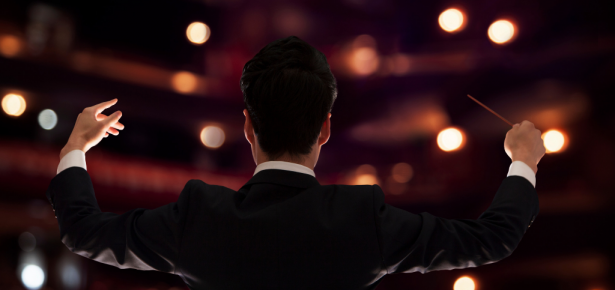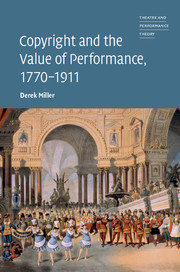
After much hard work and years of lawsuits and other complaints, the United States Congress seems destined finally to update music’s copyright law. The Music Modernization Act passed unanimously in the Senate on September 18 and, having won consent in a similar form from the House of Representatives, is likely to become law in short order. Any musician could tell you that this reform is long overdue. The modern musical economy depends on online streaming, yet artists have until now received very little compensation for music played online. The new law would restructure how digital streaming services such as Spotify pay musical artists, as well as the system under which payment rates are determined. Happily, most parties affected by the law seem ready to accept and welcome the new musical copyright regime.
At least one aspect of the legislation, however, might seem extremely odd: its name. After all, while the bill would certainly modernize musical copyright law, it’s not actually modernizing music. The law isn’t in a studio, mixing a new album, or composing a symphony for as-yet-unheard-of instruments. It’s just changing how (and how much) musicians get paid. Right?
Wrong. The bill’s authors, whether they knew it or not, have given this legislation precisely the right title. As I argue in my new book, Copyright and the Value of Performance, 1770–1911(Cambridge University Press, 2018), copyright law contains its own ideas about what makes music, and the other arts it regulates, valuable. Those ideas in turn affect the kind of art that people make. In other words, copyright law—along with other factors including trends in artistic styles, individual artists’ perspectives, how music finds its way to listeners, and those listeners’ tastes— shapes the future of art. By exploring copyright law’s history, my book demonstrates how copyright law understands (or, more often, misunderstands) the arts, and then how those misunderstandings impact art’s development.
For example, Gilbert & Sullivan’s partnership suffered under the strain of American legal battles in the 1880s. Legal filings, correspondence, and contemporary newspaper reports demonstrate that courts’ legal evaluations of Gilbert & Sullivan operettas such as The Mikado exacerbated creative tensions between the two men, particularly when judges denigrated Sullivan’s music as “undramatic.” These cases—and many more, including lawsuits involving figures and works such as Dion Boucicault, Laura Keene, and The Black Crook—were essential to the development of performance rights, the subset of copyright law that protects performances of dramatic and musical works. As courts developed a body of law around performance rights, they filled in legal definitions of drama and music, definitions that suited more or less the specific condition of those arts at the time, but also constrained how those arts changed in the ensuing decades.
Just as in the nineteenth century, each change in copyright law will alter how we value the arts. The Music Modernization Act will therefore do exactly what it says. Yes, the law will modernize how music is bought and sold, but also how it is composed, performed, and enjoyed.
 Copyright and the Value of Performance, 1770–1911 is now available from Cambridge University Press
Copyright and the Value of Performance, 1770–1911 is now available from Cambridge University Press
Derek Miller is John L. Loeb Associate Professor of the Humanities at Harvard University and currently a Visiting Associate Professor at Columbia University.
For more information, visit his website at https://scholar.harvard.edu/dmiller.
Latest Comments
Have your say!